Proven Outcomes
A Primary Care Model with Improved Health Outcomes
Studies show that MDVIP’s unique primary care model provides not only a better healthcare experience for patients, but also improved health outcomes.
Better Chronic Care Management
More than half of American adults have a chronic disease, and 25 percent have more than one. Approximately half of those conditions are preventable. In contrast to conventional primary care practices with thousands of patients where lack of time can result in more reactive medicine, MDVIP-affiliated physicians have the needed time, tools and technology to proactively perform recommended preventive services and better manage chronic illness.
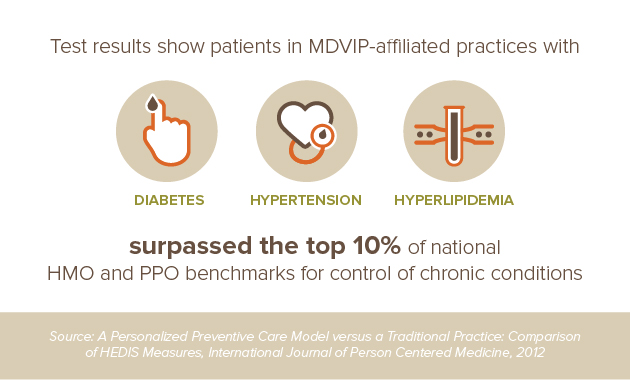
Fewer Hospitalizations, Substantial Savings
Hospitalizations are the largest cost drivers for the healthcare system, and patients shoulder a portion of these bills. The keys to keeping patients out of the hospital include a proactive, preventive approach to primary care, physician availability both during and after office hours, and time to provide more comprehensive assessment, treatment and medical management.
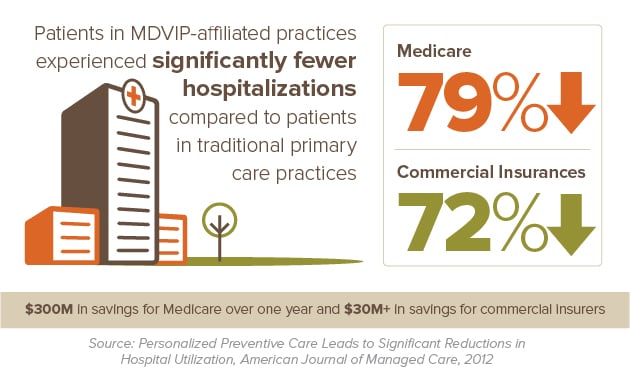
Lower Emergency Room and Urgent Care Utilization, More Cost Savings
In a collaborative study with a top health insurer, patients in the MDVIP model used the emergency department and urgent care centers significantly less frequently than their counterparts in traditional primary care. The analysis also showed a meaningful return on investment to the healthcare system. Savings at the end of the three years were generated from prevention rather than chronic condition management, proving the MDVIP model does prevent disease and save money.
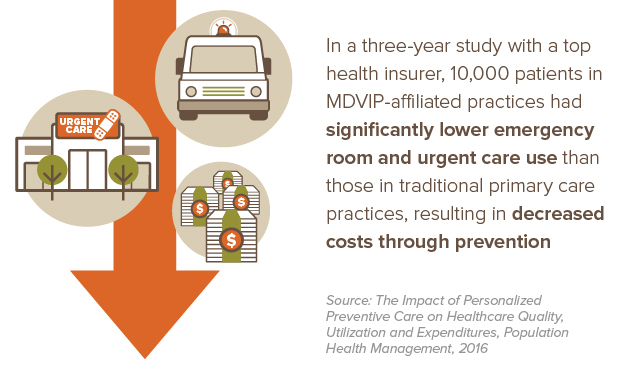
Identifying More Patients at Risk for Heart Disease
Cardiovascular disease is the number one killer of Americans. Alarmingly, at least 50 percent of heart attacks occur in individuals with normal cholesterol levels. The sophisticated lab testing in the MDVIP Wellness Program, developed by Cleveland Clinic, uses a more comprehensive, multimarker approach. This approach combines lipid panels with other indicators of cardiovascular disease, such as diabetes screening and plaque/inflammation measurements, in order to more accurately identify risk and determine level of risk.
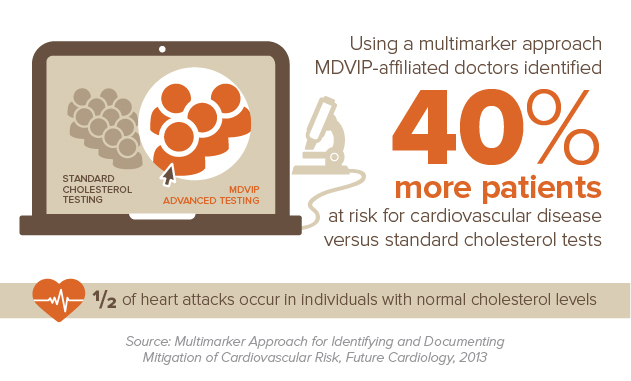
Better Doctor-Patient Relationship
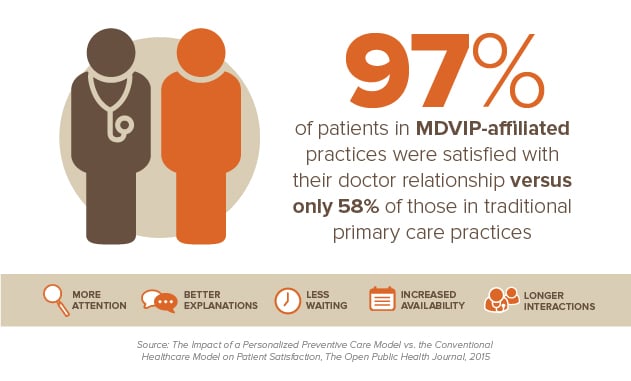
Research has shown that increased physician-patient interaction, a fundamental component of the MDVIP care model, produces better results. In one such study, patients in MDVIP-affiliated practices were more satisfied with their doctor relationship (97 percent) than patients in conventional practices (58 percent). Additional findings included patients in the MDVIP model were more satisfied with their physician’s attention to what they had to say, explanation of their condition, the amount of time spent with them during their visits and their doctor’s increased availability. Importantly, patients of MDVIP-affiliated physicians perceived they are in better health as compared to their conventional counterparts.
The research is clear. MDVIP-affiliated doctors are making a consequential difference in the lives of their patients.
